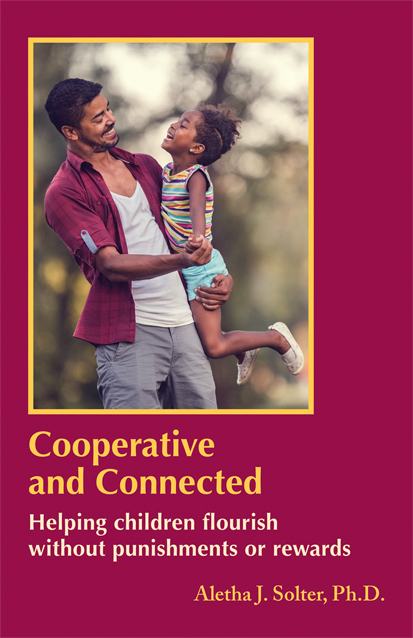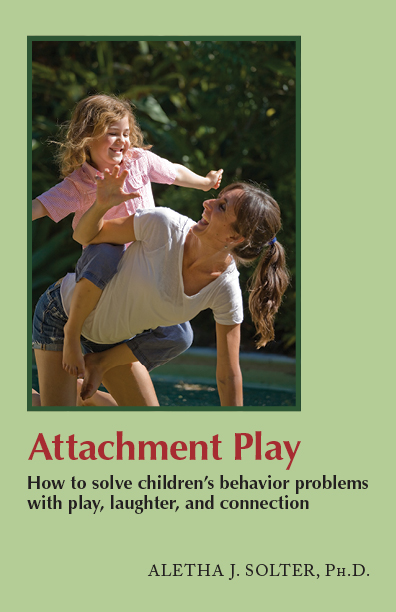Don't spank your children:
Ten reasons to avoid corporal punishment
by Aletha Solter, Ph.D.
(Dutch version: Sla je kinderen niet)
(French version: Ne frappez pas vos enfants)
(Spanish version: No pegues a tus hijos)
1. Corporal punishment can lead to aggressive behavior.
Children who are spanked are more likely to hit and bite other children, become playground bullies, and have violent outbursts as adults.
2. Corporal punishment can lead to rebellion.
Children who are spanked are more likely to rebel against their parents and engage in risky behaviors.
3. Corporal punishment can cause children to numb physical sensations.
Children who are spanked can become desensitized to their body’s signals of pain, hunger, fullness, fatigue, and drug overdose.
4. Corporal punishment can cause sexual problems.
Children who are spanked on the buttocks may suffer later on from sexual dysfunction and sexual perversions.
5. Corporal punishment can lead to later emotional problems.
Children who are spanked are more likely to suffer from anxiety, depression, and substance abuse as adults.
6. Corporal punishment fails to teach children useful conflict resolution skills.
Children who lack role models for constructive communication are more likely to have difficulty with relationships as adults.
7. Corporal punishment can lead to lying and deception.
Children who learn to avoid punishment by lying will be more likely to continue this pattern of behavior as they grow older.
8. Corporal punishment can cause children to fear their parents.
Children who do not feel safe at home will be more likely to leave home at an early age and reject their parents’ values.
9. Corporal punishment is emotionally and physically painful.
Children who are exposed to frequent painful experiences are more likely to crave pleasurable experiences such as sex and drugs.
10. Corporal punishment doesn’t work.
Although it may produce temporary compliance, spanking does NOT help children learn, become cooperative, or develop moral values. It is the least effective method of discipline.
Interview with Aletha Solter about setting loving limits with children
About Aletha Solter
Aletha Solter, PhD, is a developmental psychologist, international speaker, consultant, and founder of the Aware Parenting Institute. Her books have been translated into many languages, and she is recognized internationally as an expert on attachment, trauma, and non-punitive discipline.
Aware Parenting is a philosophy of child-rearing that has the potential to change the world. Based on cutting-edge research and insights in child development, Aware Parenting questions most traditional assumptions about raising children, and proposes a new approach that can profoundly shift a parent's relationship with his or her child. Parents who follow this approach raise children who are bright, compassionate, competent, nonviolent, and drug free.
For more information about non-punitive discipline, see Aletha Solter's books, Cooperative and Connected and Attachment Play.

